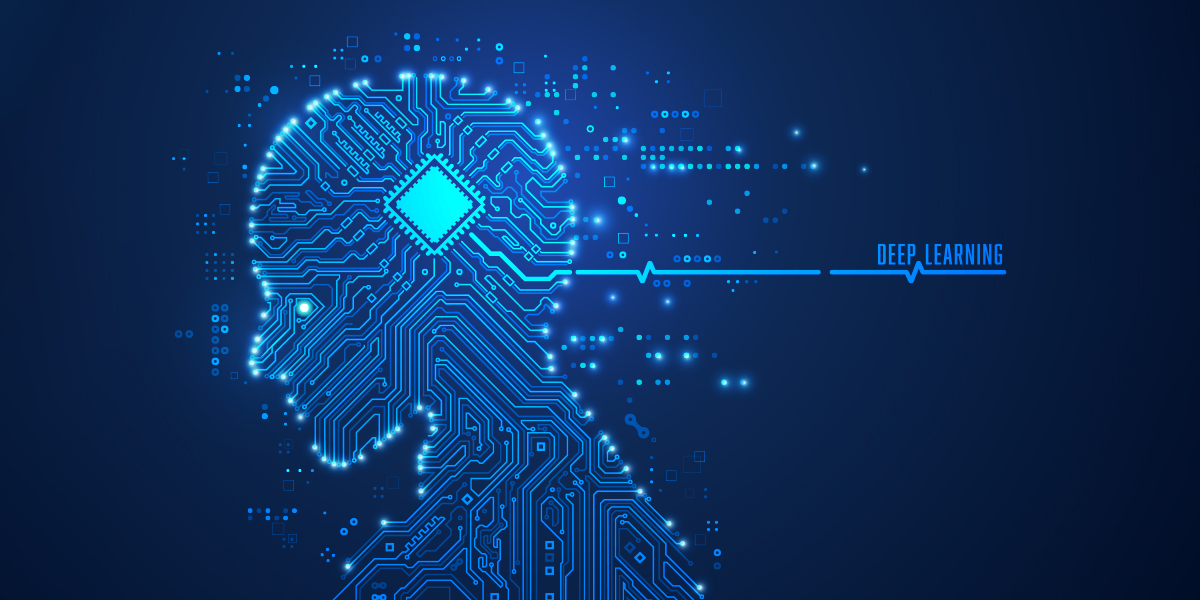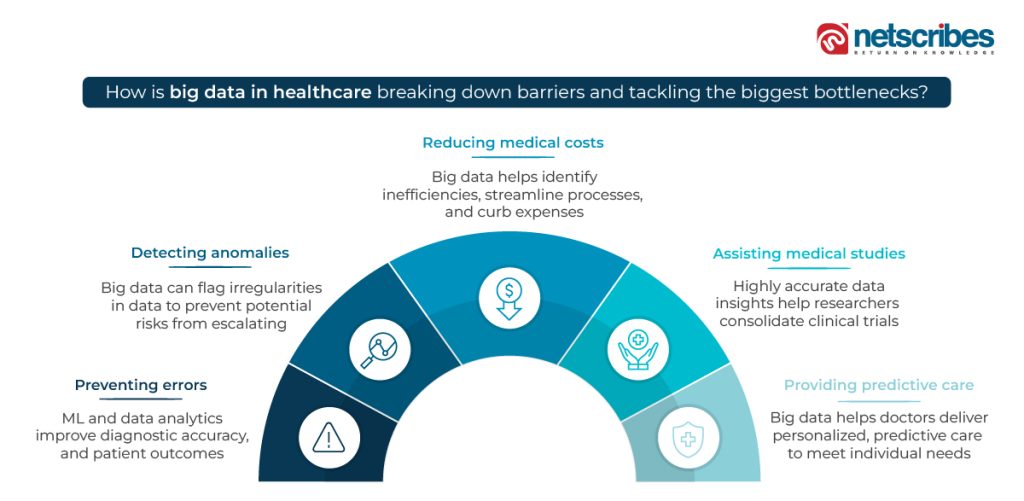5 breakthroughs powered by AI and Big Data in healthcare

One of the toughest challenges doctors face is the risk of misdiagnosis or delays in patient care. Besides, when lives are on the line, precision isn’t just important, it is essential. This is where big data in healthcare steps in, catalyzing the shift from reactive to proactive treatment. With advancements in AI and machine learning, healthcare professionals now have the ability to extract powerful insights from vast, complex datasets. This isn’t just about improving systems; it’s about reshaping the future of patient care.
Big Data is making personalized treatments and accurate predictive modeling a reality. Whether it’s spotting early warning signs of disease or streamlining medical procedures, the healthcare industry is tapping into data’s full potential.

Let’s look at how some of real-world initiatives and breakthroughs powered by AI, ML, and big data in healthcare .
1. Can ChatGPT help doctors diagnose cancer?
Harvard scientists have developed a highly versatile AI model, a lot like ChatGPT, to perform a range of diagnostic tasks for different forms of cancers. The researchers believe this new system is one step ahead of the AI approach currently used for cancer diagnosis. Typically, these pre-existing AI models are trained to perform specific tasks like identifying the presence of cancer or predicting the genetic profile of a tumor. However, due to limited screening capability, they can evaluate the risk of only certain types of cancers. Nonetheless, the new model can effectively perform a large number of tasks. In fact, the researchers tested it on 19 cancer types, making it highly flexible, like that of large language models such as ChatGPT.
2. Can LLM’s help doctors solve complex problems?
Google Health has built an LLM solution, Med-PaLM to provide high quality and accurate answers to medical questions. Designing an AI tool capable of answering medical queries accurately has been a prevalent challenge for researchers in the past. Today, U.S. Medical License Exam-style (USMLE) questions have become a popular benchmark for assessing the overall performance of answering medical questions. Med-PaLM has impressively reached a passing score in the USMLE-style questions. In fact, it became the first AI system to attain this score with 67.6% accuracy. Additionally, Google has refined this model to create Med-PaLM 2 with an even greater performance of 86.5%. Strides across LLM, AI, and big data in healthcare are making the life of doctors a lot easier.
3. Can big data and GenAI support innovations in life science?
Microsoft Corporation recently announced their plans to expand their collaboration with NVIDIA and drive innovations in healthcare. By combining the computing capabilities of Microsoft Azure with NVIDIA Clara and NVIDIA DGX Cloud, the collaboration will empower life science innovation and enhance patient care. By leveraging the transformative power of cloud technology, AI, and advanced computing, this collaboration is set to revolutionize clinical research and drug discovery, pushing the boundaries of medical imaging diagnostics, and expanding access to personalized, precision medicine. The scope of big data in healthcare is tremendous.
4. Can we imagine a future where doctors deliver AI-discovered drugs to patients?
Roche’s Genentech houses extensive datasets accumulated from years and years of clinical research, which are used to train AI models. In line with these efforts, Genentech and NVIDIA entered a partnership to create a top-notch next-gen drug discovery platform powered by generative AI. The collaboration will make Genentech’s proprietary ML algorithms and models more powerful with the help of NVIDIA BioNeMo.
Drug discovery and development is often a long, complex, and unpredictable journey. Identifying new drug targets and developing molecules into viable treatments presents significant challenges. Genentech sees AI as a game-changer in transforming this process. By combining the power of AI with human expertise, cutting-edge science, and advanced technology, Genentech aims to make drug development more predictable, cost-effective, and ultimately more successful. This approach has the potential to accelerate the discovery and design of life-saving therapeutics, improving lives on a global scale.
Read our blog Challenges in healthcare: battling breaches and privacy perils.
5. Can AI ML predict diseases early on?
Johns Hopkins University investigators have designed a Targeted Real-Time Early Warning System (TREWS), an ML system for sepsis. Out of the 9,800 confirmed cases of sepsis it was used to evaluate, TREWS identified 82% of patients with the complication early on. This effort can be seen across a wide range of research institutes. Evidently, the University of California at San Diego also proposed an AI tool called COMPOSER, capable of addressing sepsis. It is essential to address diseases like sepsis with immense burden. Hence, researchers worldwide are working towards creating advanced AI-driven algorithms that can predict conditions early on.
Cut the clutter with big data: Better the insights, better the patient outcomes
The healthcare sector generates vast amounts of data annually, with hospitals alone producing 50 petabytes each year from sources like medical devices, health imaging, and electronic health records. Big Data has the potential to revolutionize the way this information is managed and utilized, driving improvements across medicine, finance, and healthcare technology. What we’re witnessing today is just the beginning. The real breakthrough will be in how seamlessly these technologies integrate into everyday medical practices, making proactive, data-driven care the new standard. In a world where every decision can be backed by comprehensive data insights, the future of healthcare looks brighter—and smarter—than ever.
Discover our tailored healthcare solutions






